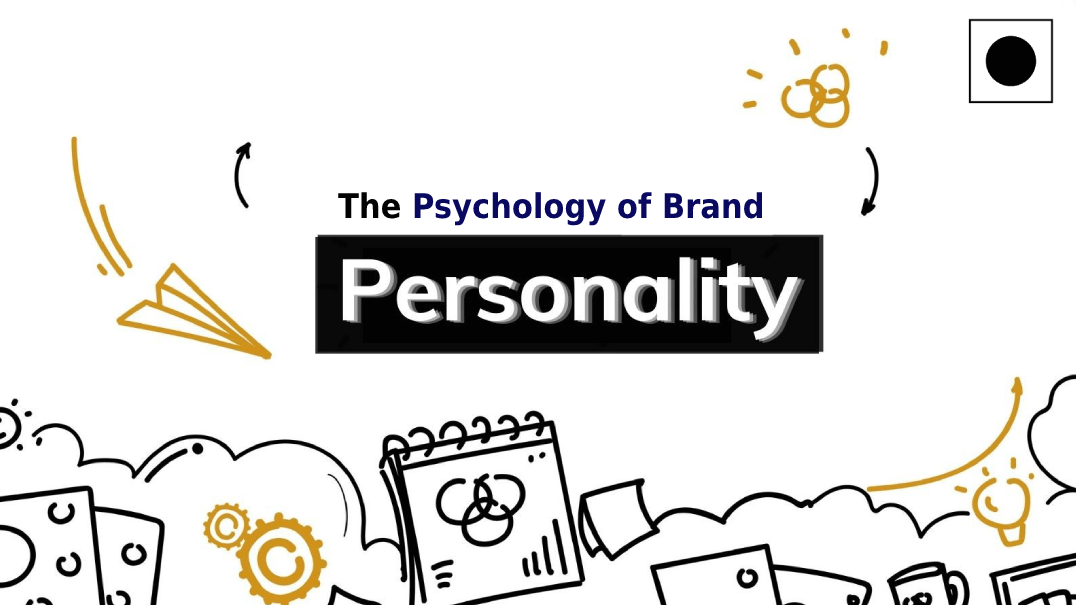Oct 5, 2022

Why do people wait in line for hours to get the new iPhone? Or pay premium prices for Air Jordans? It all comes down to the psychology behind a brand’s personality. Brands you love don’t just happen to be your favorites.
Here we will be discussing in depth about brand personality and why it is an essential part in branding.
Brand personality is a vital part of brand positioning and differentiation. Brand personalities humanize brands, making them more relatable to their target audiences and giving them depth and nuance.
Brand personality is the part of your brand that your customers recognize and create a relationship with. Because of this, it plays a tremendous role in driving customer acquisition, fostering brand loyalty, and creating brand equity.
Creating a brand personality can benefit your business in the following ways:
Brand personalities are often overlooked by businesses, resulting in mediocre branding. These businesses are efficiently flushed out by competitors who established an emotive connection with their audience from the start.
Since personality traits are eventually human traits, the most useful way to define your brand’s personality is to consider it as if it were a person. The psychology of branding comes into play here.
The personality of a brand can be segmented into various distinct facets: emotion, intelligence, characteristics, and behaviors.
Just as with people, some brands are more emotionally driven: inspired by passion. And some are more intelligently manipulated: inspired by rational analysis and logical insight.
An emotion-driven brand looks and senses a lot differently than its intelligence-driven counterpart.
Comprehending where your brand falls on the EQ to IQ spectrum will permit you to define its more substantial attributes: its features and behaviours.
Characteristics are how a brand is sensed by those it interacts with. They are its outward, most readily visible attributes.
Harley Davidson, for instance, could be said to be tough and masculine.
Its behaviours, by comparison, are how a brand acts within the context of the globe around it. Red Bull, for example, is adventuresome and bold, as we investigate further below, sponsoring events around the globe that push the limits of intense performance.
In defining brand personality, we specify four attributes—usually two characteristics and two behaviours—from a broad-ranging list inspired by the five dimensions of brand personality documented above. We then provide these attributes with short descriptions customized to the brand in question.
Brand personality is a framework that permits a company or organization to shape the way people judge its product, service, or mission. A company’s brand personality evokes an emotional response in a typical consumer segment, intending to incite positive actions that benefit the firm.
Customers are more probable to purchase a brand if its personality is equivalent to their own. There are five main types of brand personalities with typical traits:
Brand personalities are even more significant, especially in the digital age where automation and artificial intelligence (AI) technology is evolving. As much as consumers relish being able to shop online or have companies indicate their preferences, studies show that people still want personal interaction and direct customer service when it arrives to the way they do business with companies.
Key Note Down:
Customers are more probable to purchase a brand if its personality is equivalent to their own.
It is essential for companies to accurately describe their brand personalities so they resonate with the right consumers. This is because a brand personality results in improved brand equity and represents the brand’s attitude in the marketplace. It is also an essential factor in any prosperous marketing campaign.
There are numerous examples in the corporate planet of how brand personality functions. Here are some of the most familiar ones below.
Also Read more on Misunderstood Facts About Brand Strategy
Creating a personality for your brand will allow establish a more human connection with your customers. Customers with emotive ties to a brand will abide loyally for years. Here are a few takeaways to keep in mentality:
